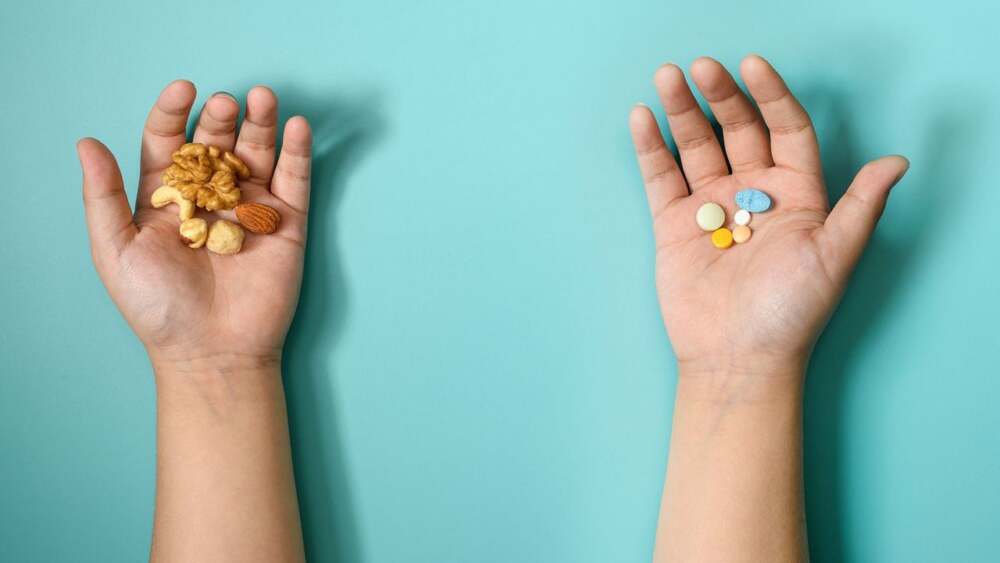A growing body of scientific research is exploring ways to naturally boost the hormone Glucagon‑like peptide‑1 (GLP‑1), the key molecule behind medications like Ozempic (semaglutide), which have become widely used for type 2 diabetes and weight loss. The hormone helps regulate blood sugar levels, slows digestion, and reduces appetite. Now, researchers are investigating whether diet, gut microbes and metabolic pathways might replicate—or at least partially mimic—these effects without the need for injections or pharmaceuticals.
What Researchers Found
Gut Microbe & Metabolite Pathway
One recent study identified the gut microbe Bacteroides vulgatus and its metabolic by‑products as key players in stimulating GLP‑1 release. In experiments with diabetic mice, increasing the abundance of this microbe—or administering its metabolite—boosted GLP‑1 secretion, which then triggered increased levels of another hormone, fibroblast growth factor 21 (FGF21), known to regulate sugar cravings. Researchers found that mice with a genetic reduction in the gut protein Ffar4 had fewer B. vulgatus colonies, lower FGF21 production, and stronger sugar preferences—suggesting a complex gut‑microbe‑hormone link.
Boosting Gut Hormone Production via Nutrition
Another angle focuses on how specific nutrients influence GLP‑1 release. For example, the amino acid tryptophan and its metabolite indole—which are influenced by gut bacteria—played a pivotal role in generating more hormone‑secreting cells (enteroendocrine cells) in lab and animal models. One study showed that feeding rats and organ‑cultured “mini‑guts” with tryptophan boosted new GLP‑1‑secreting cells, suggesting a way to naturally boost the body’s capacity to produce GLP‑1, rather than relying solely on drug mimics.
Why This Matters
- Potential for non‑drug interventions: If gut microbes or specific dietary interventions can reliably increase GLP‑1, it opens a path toward less invasive, lower‑cost approaches to managing blood sugar, weight and metabolic health.
- Reduced side‑effect profile: GLP‑1 medications bring substantial benefit but also carry side effects (nausea, injection logistics, cost). Natural or dietary approaches might reduce risk, though they currently appear less potent.
- Personalised medicine & nutrition: The research underscores how individual gut microbiomes, genetics (e.g., Ffar4 variants), and diet interact — meaning future therapies could be more tailored to a person’s biology and lifestyle.
- Expanding our understanding of metabolic signalling: The findings highlight the gut as a key endocrine organ — not just a digestion site — and hint at broader networks (microbes → metabolites → hormone release → appetite/insulin regulation).
Important Caveats
- Most of these discoveries are in early stages: animal models, lab‑cultured gut systems, or small human cohorts. Large‑scale human trials are needed to confirm safety, efficacy and relevance.
- While these natural pathways show promise, the magnitude of hormone increase achieved so far is far smaller than that seen with medication. For instance, dietary strategies might boost GLP‑1 modestly, whereas drugs like Ozempic raise it substantially.
- Natural doesn’t mean “quick fix” — lifestyle, diet, exercise, sleep and overall health remain foundational. No supplement or microbe‑therapy fully replaces comprehensive metabolic care.
- If commercial “natural GLP‑1 boosters” emerge, regulatory oversight and marketing claims will matter. Some may overstate benefits; science is still catching up.
What Can Individuals Do Now?
While awaiting further breakthroughs, here are practical actions based on current evidence:
- Consume a diet rich in fiber, especially soluble fiber that gut bacteria ferment (which in turn stimulates GLP‑1).
- Include tryptophan‑rich foods (like poultry, eggs, dairy, seeds) and support overall gut health (diverse plants, vegetables, whole grains).
- Consider meal composition and eating order: Protein and vegetables first, carbs later may optimise GLP‑1 response.
- Support gut microbial diversity: Avoid overly restrictive diets, include fermented foods, and maintain healthy lifestyle habits that favour beneficial microbes.
- Speak with your healthcare provider before assuming any diet or supplement strategy will mirror the effects of medication.
Final Thoughts
The notion of “natural Ozempic” isn’t about replacing proven medications overnight — rather, it reflects a growing scientific frontier: how our gut, microbes and hormones interplay to regulate metabolism. The idea that we might someday harness gut bacteria or diet to boost GLP‑1 production is compelling and promises less invasive options. Yet, for now, these approaches are experimental and supplement—not substitute—for existing therapies and lifestyle strategies.















Leave a Reply